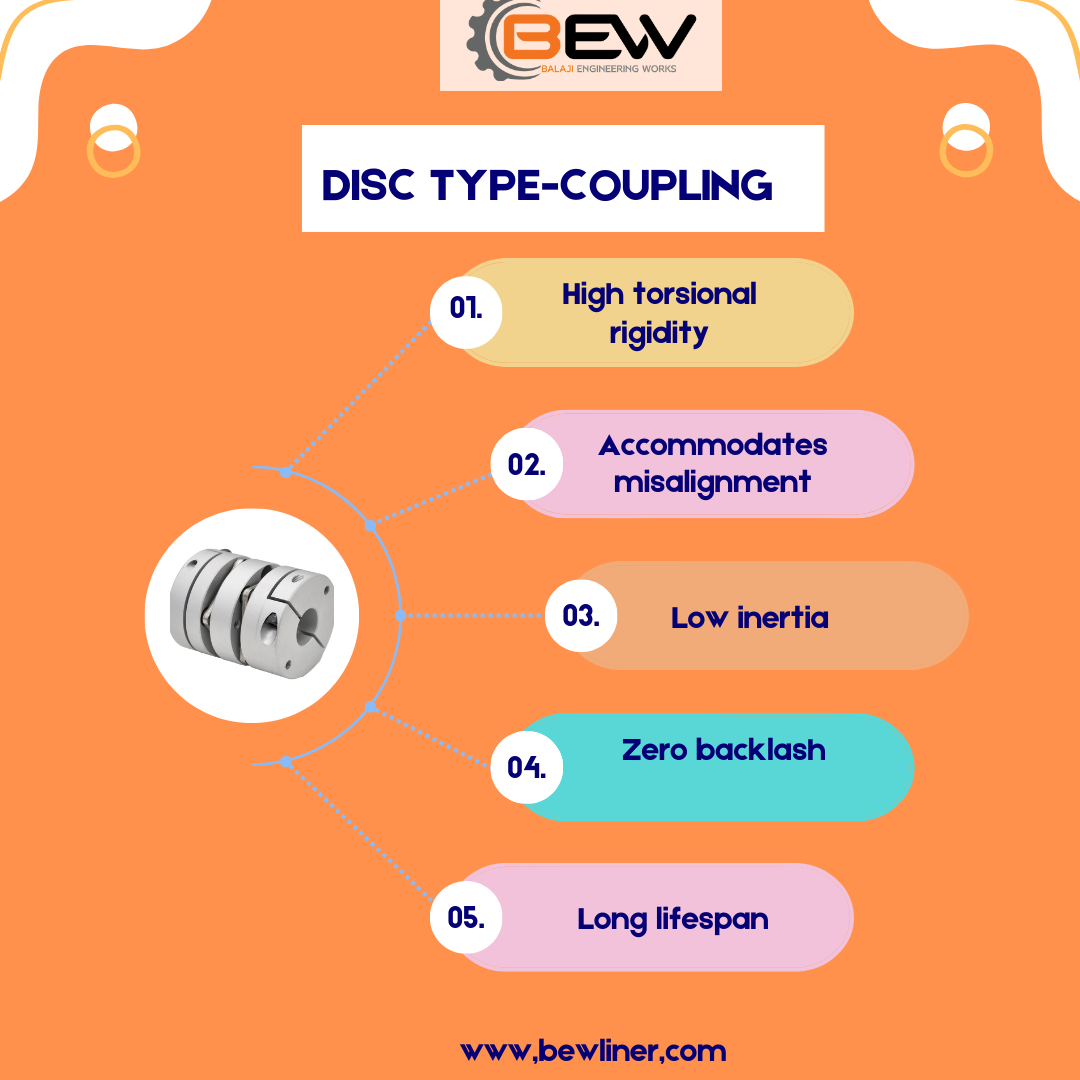Disc type couplings are a popular choice for power transmission applications in a variety of industries. They are known for their ability to accommodate shaft misalignment, high torque capacity, and long service life.
How Disc Couplings Work
Disc couplings transmit torque through a series of thin, flexible discs that are bolted between two hubs. The discs are typically made of stainless steel or a composite material, and they are designed to flex and bend to accommodate shaft misalignment.
Types of Disc Couplings
There are two main types of disc couplings: single-disc couplings and double-disc couplings.
- Single-disc couplings can accommodate angular and axial misalignment, but they cannot accommodate parallel misalignment.
- Double-disc couplings can accommodate all three types of misalignment: angular, axial, and parallel.
Advantages of Disc Couplings
Disc couplings offer a number of advantages over other types of couplings, including:
- High torque capacity: Disc couplings can handle high torque loads, making them ideal for heavy-duty applications.
- Low maintenance: Disc couplings are relatively maintenance-free, and they can operate for many years without requiring replacement.
- Long service life: Disc couplings have a long service life, making them a cost-effective choice for power transmission applications.
- Accommodates shaft misalignment: Disc couplings can accommodate all three types of shaft misalignment: angular, axial, and parallel. This makes them a good choice for applications where shaft misalignment is unavoidable.
Applications of Disc Couplings
Disc couplings are used in a wide variety of applications, including:
- Pumps
- Compressors
- Motors
- Generators
- Fans
- Blowers
- Mixers
- Agitators
- Conveyors
- Printing presses
- Paper machines
- Food processing equipment
- Textile machinery
- Mining equipment
How to Choose the Right Disc Coupling
When choosing a disc coupling, there are a number of factors to consider, including:
- Torque capacity: The coupling must be able to handle the maximum torque load of the application.
- Shaft misalignment: The coupling must be able to accommodate the amount of shaft misalignment that is expected in the application.
- Speed: The coupling must be able to operate at the speed of the application.
- Environment: The coupling must be made of materials that can withstand the environmental conditions of the application, such as temperature, humidity, and chemicals.
Conclusion
Disc couplings are a versatile and reliable type of coupling that can be used in a wide variety of applications. They are known for their high torque capacity, long service life, and ability to accommodate shaft misalignment. When choosing a disc coupling, it is important to consider the specific requirements of the application.


